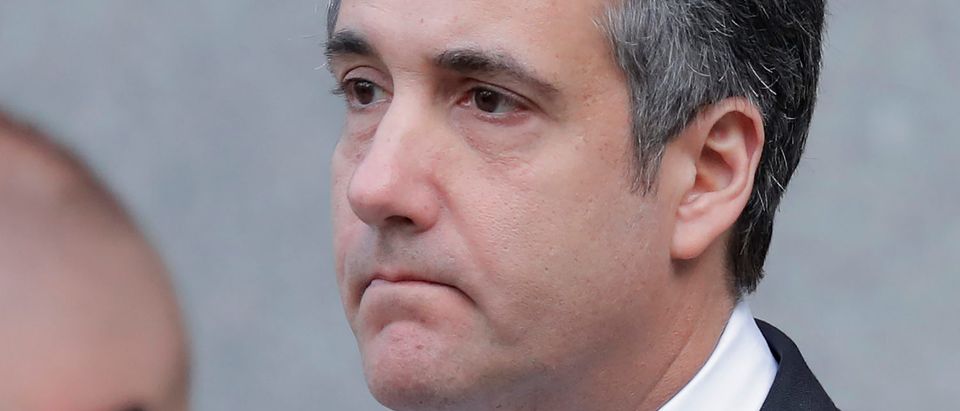In the wake of his former attorney Michael Cohen’s plea deal, President Trump has remained true to form, lambasting Cohen and offering an interesting take on prosecutors’ ability to make deals with cooperating witnesses in exchange for their testimony against other would-be defendants.
In essence, Trump said he believes so-called “flipping” should be illegal.
The president’s critics will certainly use this quote to draw comparisons to infamous, lawless figures and accuse him of embracing authoritarianism. However inadvertently, Trump actually made an almost spot-on observation about Congress’s take on prosecutors’ ability to offer a reduced sentence to a cooperating witness in exchange for their testimony against a third party.
Enter 18 United States Code Section 201, subsection (c)(2). In this text, the legislature has made it illegal for “whoever” to give, offer, or promise “anything of value to any person, for or because of the testimony under oath or affirmation given or to be given by such person as a witness upon a trial, hearing, or other proceeding.” One needn’t possess a law degree to understand what these words mean: it ought to be illegal for a prosecutor to offer a cooperating witness a reduced sentence in exchange for testimony.
Alas, the legislature is not the only branch of government, and the courts have already ruled on this text in an example of some truly impressive judicial acrobatics.
In the 1999 case of United States v. Singleton, a defendant was on trial for multiple counts of money laundering and conspiracy to distribute cocaine. Based on 201(c)(2), the defendant attempted to block the testimony of a cooperating witness, a fellow conspirator who entered into a plea deal with prosecutors. In exchange for his testimony, the government made three promises to the co-conspirator. These promises included declining to prosecute the cooperating witness for further crimes and advising the sentencing court as well as the relevant parole board of his assistance. The issue with this type of plea deal is that it can create an incentive structure for a cooperating witness to provide false testimony.
Still, the district court denied the defendant’s request, holding that 201(c)(2) did not apply to the prosecutors’ plea agreement. On appeal, a three-judge panel of the 10th Circuit Court of Appeals reversed the district court and held that the government was not exempt from the statute— ruling that the cooperating witness’s testimony should be suppressed.
A win for due process, right? Sadly, our story doesn’t end there.
Shortly after the three-judge ruling, the 10th Circuit’s full 12-judge panel sat to hear the case again. In an awesome display of judicial activism sure to blow the minds of first-year law students everywhere, the court held that the word “whoever” in the statute couldn’t apply to the federal government.
The reasoning?
The word “whoever” implies an actual person or entity, and, since a federal prosecutor technically represents the United States government, a federal prosecutor is not a “whoever.” Of course, it would be “patently absurd” to think Congress intended to subject the United States to the criminal penalties of the statute. After all, why should a government be subject to its own laws?
But perhaps my favorite part of the court’s opinion was its later argument that, by applying the statute as written, the government would be deprived of its “vested sovereign prerogative” to trade leniency for cooperation. In this, they’re using the seven most expensive words in business—or, rather, in prosecuting citizens: because we’ve always done it this way.
With that, the court denied the defendant’s motion to suppress the cooperating witness’s testimony. In the same stroke of the pen, the 10th Circuit denied the last legitimate challenge to a prosecutor’s ability to dramatically shift the playing field in a criminal case.
Thus, federal prosecutors may offer sparkling deals to individuals facing prosecution, thereby creating a compelling incentive to provide the testimony sought, truthful or not. All the while, a defense attorney who offers value to a witness to testify in the defendant’s favor is subject to a fine and/or imprisonment of up to two years.
So, was President Trump channeling his inner-authoritarian when he said “flipping” should be illegal? To argue so would demonstrate exactly the dismissive, short-sighted, and bombastic nature of which the president’s critics so often accuse him.
While I doubt Trump has done a deep dive into Singleton, he is right when he says the plea-deal regime is an unfair tool prosecutors use to trap cooperating witnesses into a domino effect. Prosecutors identify their ultimate target, pick that target’s subordinate, and apply pressure to that subordinate with decades of imprisonment, only to relieve that pressure with a plea deal that is laughably minuscule compared to the charges. Sound familiar?
As we’re used to seeing with the president, he could have phrased his observation a bit more eloquently. But one thing is for sure: A defendant’s right to due process is significantly undermined by a prosecutor’s exclusive ability to trade leniency for testimony.
Matt Lupo is an attorney licensed in D.C. and a Young Voices contributor.
The views and opinions expressed in this commentary are those of the author and do not reflect the official position of The Daily Caller.


